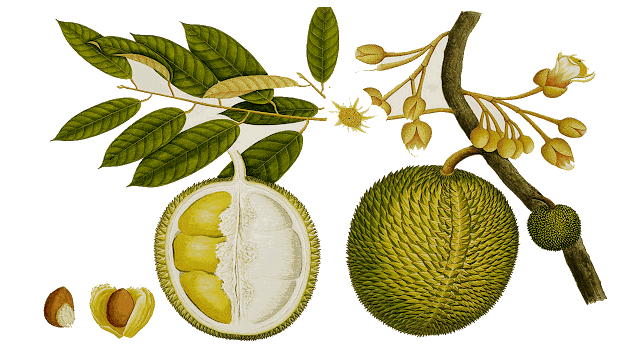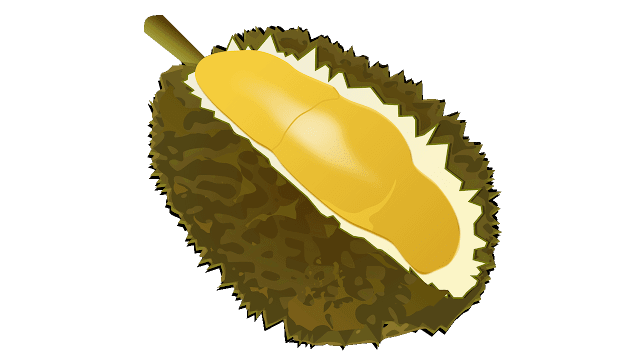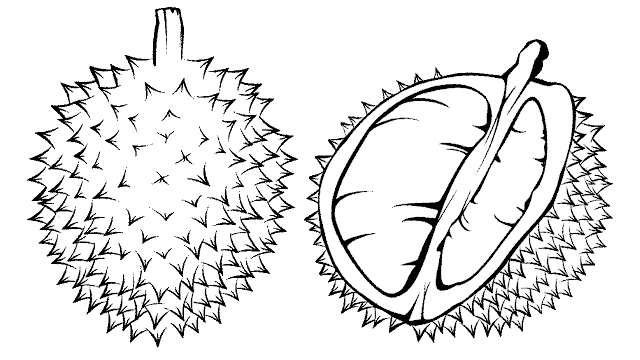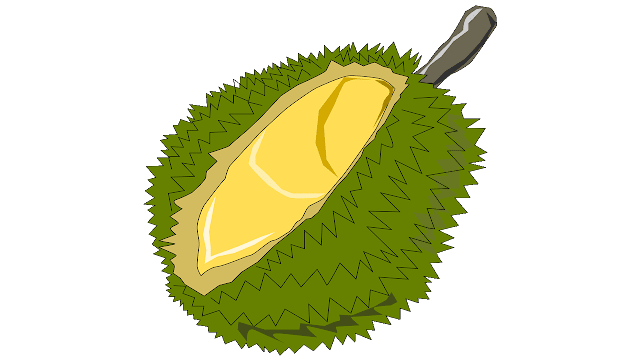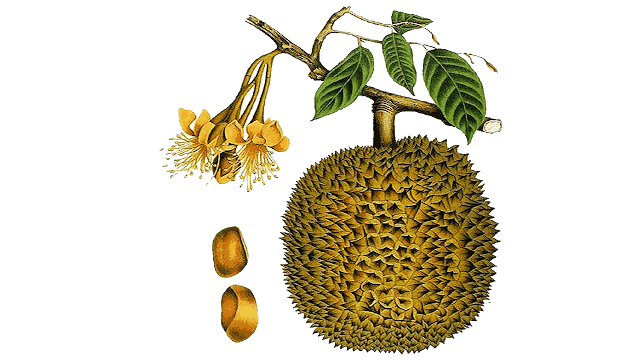Durian is a tropical plant whose name comes from the Southeast Asia region, as well as the name of the fruit that can be eaten.
The name is taken from the characteristic of the fruit skin is hard and sharp that squiggly resemble thorns.
His most popular title "king of all fruits". Durian is a fruit that is controversial, although a lot of people who like it, but others're fed up with its sharp aroma.
Because the harsh smell sting, a number of companies and airlines forbid the carrying durian, for example in aircraft cabins, in public transport vehicles or brought to the hotel.
10 Durian Fruit Royalty Free Clipart
Durian Fruit Benefits
The durian fruit is a good source of antioxidant vitamin-C (about 33% of RDA). Consumption of foods rich in vitamin-C helps the human body develop resistance against infectious agents and scavenge harmful free radicals.
It is an excellent source of health benefiting B-complex groups of vitamins; a rare feature for fruits, such as niacin, riboflavin, pantothenic acid (vitamin B5), pyridoxine (vitamin B-6) and thiamin (vitamin B-1). These vitamins are essential for the body as it requires them from external sources to replenish.
Durian is rich in dietary fiber, which makes it a good bulk laxative. The fiber content helps protect the colon mucous membrane by decreasing exposure time to toxins. It also helps bind and eliminates cancer-causing chemicals from the gut.
Durian, like other tropical fruits such as Banana, avocado, and jackfruit, is high in energy, minerals, and vitamins. 100 g fresh fruit carries 147 calories.
The fruit is made of soft, easily digestible flesh made of simple sugars like fructose and sucrose that when eaten replenishes energy and revitalizes the body instantly. Though it contains a relatively higher amounts of fats among the fruits, it is free from saturated fats and cholesterol.
Fresh durian fruit is a very rich source of potassium. Potassium is an essential electrolyte inside cells and body fluids that help controlling heart rate and blood pressure.
Further, it also contains a good amount of minerals like manganese, copper, iron and magnesium. Manganese is utilized by the body as a co-factor for the antioxidant enzyme, superoxide dismutase. Copper is required in the production of red blood cells. Iron is essential for red blood cell (RBC's) formation.
